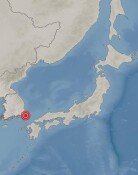[Editorial] China Tech vs. Korea Tech
[Editorial] China Tech vs. Korea Tech
Posted December. 12, 2009 09:31,
Korea Development Bank in 2004 surveyed the technological competitiveness of Korea, China and Japan. The study found that Korea was 3.8 years ahead of China at the time. In the same year, 88 percent of Korean companies doing business in China said there will be no technological gap between Korean and Chinese companies in their industry within four years. The National Science and Technology Council of Korea also warned that China will overtake Korea if it acquires and attracts cutting-edge companies.
That warning has become reality. Chinese companies equipped with world-class technology are surpassing their Korean counterparts. The Chinese automaker Biyadi is producing electric cars running hundreds of kilometers on one charge for the half the price of its global competitors. Biyadi is also aiming for the worlds top spot with more than 10,000 researchers. Huawei, the worlds third biggest manufacturer of communication facilities, had 75 percent of last years revenue coming from overseas, Haier is called the Samsung Electronics of China, and Suntech Power Holdings is the countrys largest maker of solar panels. All three of the above companies have thousands or tens of thousands of research staff. Chinas R&D investment in 2007 was 48.8 billion U.S. dollars, much higher than Koreas 31.3 billion dollars.
A 2007 report on Korea by IBM Consulting blamed lack of innovation as the problem, saying, The Korean economy is about to surpass 20,000 dollars in per capita income but has remained 11th in world GDP rankings for 20 years. If its strategy is simply to follow developed economies, the report said, Korea cannot surpass the U.S. and Japan with their source technologies. In last year, Korea fell to 15th in the global GDP rankings because it was trying to keep China at bay rather than catch up with advanced economies. Administrative regulations on technology in Korea are one of the causes for this.
The Knowledge Economy Ministry of Korea conducted a survey that was reported to the Presidential Council on National Competitiveness Wednesday. The study found that as many as 4,463 regulations hinder technological development. Companies that develop and produce fuel cells have 43 overlapping tests by the Korea Gas Safety Corp. and the Korea Energy Management Corp. Each test costs 26 million won (22,350 U.S. dollars). The countrys top 10 companies spend an average of 24.6 billion won per year (21.1 million dollars) over an average of 20 months to follow tech regulations. Eighteen government agencies make their own rules, however, discouraging corporate willingness to develop technologies. It is deplorable that the agencies have held back companies at a time when they should encourage technological development in the face of Chinas rapid advancement.
Many challenges remain in deregulation of the technology sector because they are related to the domain of expertise of electricity, communications, gas and energy. The ministry has adopted a sunset provision in technological regulation and removal of overlapping regulations. Korea will indeed have a gloomy future if its technological advancement is held back and Chinas technology keeps advancing by leaps and bounds.







